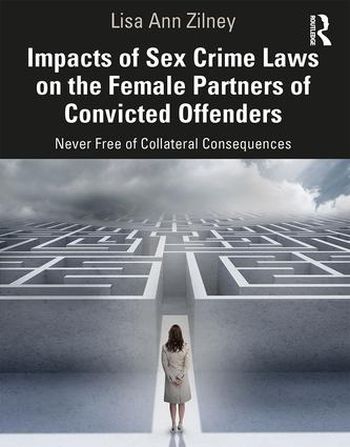
This work is an exploratory examination of the experiences, motivations, and coping mechanisms of women who are involved in intimate relationships with registered sexual offenders. The study focuses on both women who were involved with the offender prior to the commission of his offense and stayed with him post-conviction, and on women who became involved with a registered offender after his sex offense conviction. Like the offender himself, these women face a variety of challenges in responding to treatment of them by friends, family, the community, and the criminal justice system.
Utilizing the results of intensive interviews, this work provides a unique look at the women who are one of the few sources of support for registered sexual offenders and assesses the effectiveness and wide-ranging implications of community notification and registration laws on public safety, policy, and practice. This work offers alternative approaches based on evidence and case studies and considers the significance of familial contact in buffering sexual recidivism. These women are the heretofore unstudied victims of sexual offending legislation.
This book is essential reading for those in sociology, criminology, psychology, and social work. For undergraduate or graduate student, practitioner, researcher, or policy maker, this thought-provoking book will shed light on how to optimize the reintegration of sex offenders. It assesses the effectiveness and wide-ranging implications of sex offender legislation on public safety, policy, and practice and considers alternative approaches to reduce sexual violence.